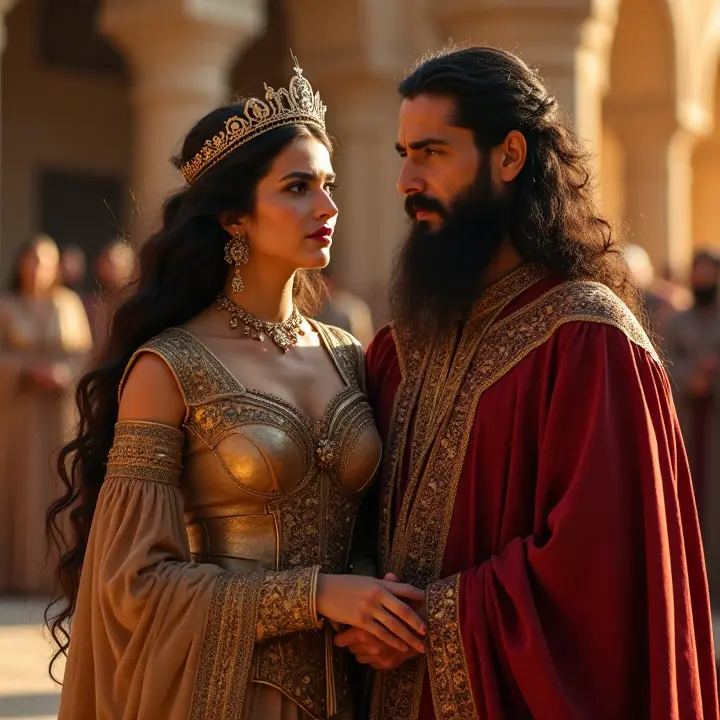In the rich tapestry of biblical narratives, the story of Esther and Mordecai stands out as a poignant illustration of familial love, loyalty, and resilience. This tale, woven into the fabric of the Book of Esther, transcends mere historical account and delves deep into the essence of what it means to love and protect one’s own, even in the face of overwhelming adversity.
Esther, a young Jewish woman, was raised by her cousin Mordecai after the death of her parents. Their relationship was not merely one of kinship but of profound love and mutual care. Mordecai, though not her biological father, took on the role with unwavering dedication, ensuring that Esther grew up with the values and traditions of their people. His love for her was selfless, driven by a desire to see her flourish despite the hardships they faced as exiles in the Persian Empire.
When Esther was chosen to become a candidate for the queen consort of King Ahasuerus, Mordecai’s initial reaction was likely one of concern. The royal court was a place fraught with danger, especially for a young woman of Jewish heritage. However, he recognized the opportunity that lay before her, not just for herself but for their entire people. His love for Esther was intertwined with his love for their community, and he saw in her the potential to be a powerful advocate for the Jews.
As Esther ascended to the throne, her relationship with Mordecai did not wane. Instead, it grew stronger, bound by a shared sense of purpose and an unspoken understanding of the sacrifices they were both making. Mordecai remained her confidant and advisor, even as he continued to serve the Jewish community outside the palace walls. His love for her was not possessive but supportive, encouraging her to use her position to protect their people from the schemes of the wicked Haman.
The pivotal moment in their story came when Mordecai learned of Haman’s plot to annihilate the Jews. He knew that only Esther, with her unique access to the king, could thwart this evil plan. In a display of unwavering love and trust, he sent a message to her, urging her to reveal her true identity and plead for her people’s lives. It was a risky move, one that could have cost both of them everything. But Mordecai’s love for Esther and their community was greater than any fear he might have harbored.
Esther’s response was equally remarkable. She could have chosen to remain silent, to protect herself and her position. But her love for Mordecai and her people drove her to take a stand. She fasted and prayed, seeking strength and guidance, and then approached the king uninvited¡ªa move that could have resulted in her death. Her bravery was born out of love, a love that transcended personal safety and comfort.
When Esther finally revealed Haman’s plot to the king, she did so with grace and courage, knowing that her actions would determine the fate of her people. The king’s intervention saved the Jews, and Haman’s plan was thwarted. In the aftermath, Esther and Mordecai were hailed as heroes, but their love for each other and their community remained the true foundation of their triumph.
The story of Esther and Mordecai is a powerful reminder of the many facets of love. It is a love that endures through trials and tribulations, a love that is both tender and fierce. It is a love that prioritizes the well-being of others, even at great personal cost. In a world often marked by conflict and uncertainty, their story shines as a beacon of hope, illustrating the transformative power of love in the face of adversity.
As we reflect on the love Stories in the bible, Esther and Mordecai’s tale stands out as a testament to the enduring strength of familial bonds. Their love was not defined by romantic gestures but by acts of courage, sacrifice, and unwavering support. It is a love that continues to inspire generations, reminding us that true love is not just a feeling but a choice, one that can change the course of history.

